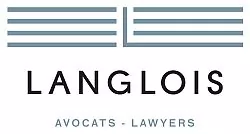In its June 2019 decision in Lacour v. Construction D.M. Turcotte T.R.O. Inc.1, the Quebec Court of Appeal appears to have revised the state of the law on prescription (limitation of actions) by deciding that in the case of a latent defect that manifests itself gradually over time, the property owner can wait several years before commissioning an expert's report, and only upon learning the report's conclusions does the three-year prescription period begin to run. In other words, the starting point for extinctive prescription of a right of action for a contractual fault is the moment when the property owner receives the expert's report.
In this matter, the appellants, who owned a building built by contractor D.M. Turcotte T.R.O. Inc., noticed cracks in the parging on the exterior of their building. In the immediately ensuing years, the appellants contacted the contractor, who came to observe the extent of the gradually worsening cracks. More than 10 years after the first cracks appeared, the appellants finally engaged an expert to provide an opinion on the cause of the cracking. Upon receiving the expert's report, the appellants instituted legal proceedings against the contractor, in which they alleged that their right of action only arose when they received the expert's report.
At the pre-trial stage, the contractor filed a motion to dismiss on the ground that the property owners' right of action was prescribed (time-barred) and their action was thus out of time. The trial judge agreed, and dismissed the action. The Court of Appeal however, citing new principles, rejected the traditional reasoning applied at trial. It ultimately dismissed the appeal, but for other reasons.
In the case of damage that manifests itself gradually or after a considerable length of time, it has long been established that the prescription period begins to run on the day the damage manifests itself appreciably or tangibly2. It was thus as of that moment that the property owner had to take steps to (i) obtain an expert's report and (ii) institute legal action against those involved in the construction, all within a period of three years. It had even been decided that the time required to obtain an expert's report was not a valid excuse to prevent the running of the prescription period. Otherwise, prescription would perforce be suspended until all the experts' reports were finalized, which is contrary to the purpose of extinctive prescription, i.e. sanctioning laxity.3
However, in its June 2019 decision the Court of Appeal concluded that the prescription period began to run the moment the property owners learned of the conclusions of the expert's report they had commissioned4. For that is when they learned that the contractor had committed a fault, and of the causal link between the fault and the gradually manifesting latent defect. In this novel decision the Court of Appeal uses as the starting point of the prescription period the plaintiff's knowledge of the cause of the damage rather than the tangible manifestation thereof.
At this point the consequences of this judgment are difficult to assess. For example, do the creditors of a contractual obligation (i.e. property owners) now have an indefinite amount of time to obtain an expert's report and then sue the construction contractor? We of course do not know how this decision will be applied by trial courts or even by the Court of Appeal itself. For the moment, all that can be said is that it is now more important than ever not to discard the records for long past construction projects, as the prescription period for defects that gradually manifest themselves may be much longer than previously thought.
Footnote
1 Lacour v. Construction D.M. Turcotte T.R.O. Inc., 2019 QCCA 1023.
2 Article 2926 of the Civil Code of Québec and J.-L. BAUDOUIN and P. DESLAURIERS, La responsabilité civile, vol. 1, 8th ed., Yvon Blais, 2014, para. 1323; DSD International Inc. v. Construction Gosselin-Tremblay Inc., 2008 QCCA 2533.
3 Boisvert v. Construction Normand Guimond
Inc., 2013 QCCS 6175, para. 20 and Sicé v.
Langlois, 2007 QCCA 1007.
4 The prescription period may begin to run upon learning
of the expert's conclusions, even if they have not yet been
reduced to writing (see paragraph 55 of the decision).
The content of this article is intended to provide a general guide to the subject matter. Specialist advice should be sought about your specific circumstances.

